New KC EMC Standards to become mandatory in May
The Korean Radio Research Agency (RRA) circulated new standards for KC EMC in their Announcement No. 2021-10 on February 8.
The changes take effect three months after publication and thus the new standards will be mandatory from May 9, 2021.
For KC EMC approvals it means that test reports on the technical requirements for electromagnetic compatibility will have to comply with and show the new standards in order to be accepted.
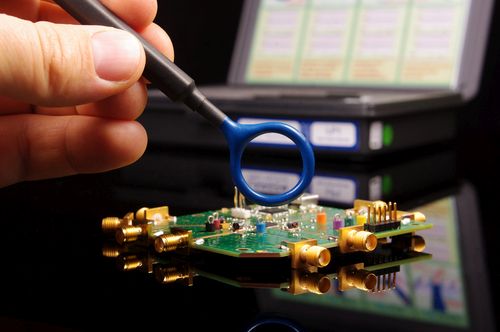
The following table provides a comparison between the old and new standards:
| Old standards | New standards |
| KN 16-1-1 | KS C 9816-1-1:2020 |
| KN 16-1-2 | KS C 9816-1-2:2020 |
| KN 16-1-3 | KS C 9816-1-3:2017 |
| KN 16-1-4 | KS C 9816-1-4:2020 |
| KN 16-1-5 | KS C 9816-1-5:2020 |
| KN 16-2-1 | KS C 9816-2-1:2020 |
| KN 16-2-2 | KS C 9816-2-2:2020 |
| KN 16-2-3 | KS C 9816-2-3:2020 |
| KN 16-2-4 | KS C 9816-2-4:2017 |
| KN 16-2-5 | KS C 9816-2-5:2020 |
| KN 61000-3-2 / KN 61000-3-12 | KS C 9610-3-2:2020 / KS C 9610-3-12:2020 |
| KN 61000-3-3 / KN 61000-3-11 | KS C 9610-3-3:2020 / KS C 9610-3-11:2017 |
| KN 61000-4-2 | KS C 9610-4-2:2017 |
| KN 61000-4-3 | KS C 9610-4-3:2017 |
| KN 61000-4-4 | KS C 9610-4-4:2020 |
| KN 61000-4-5 | KS C 9610-4-5:2020 |
| KN 61000-4-6 | KS C 9610-4-6:2020 |
| KN 61000-4-8 | KS C 9610-4-8:2017 |
| KN 61000-4-11 | KS C 9610-4-11:2020 |
| KN 61000-4-9 | KS C 9610-4-9:2019 |
| KN 61000-2-2 | KS C 9610-2-2:2017 |
| KN 61000-2-4 | KS C 9610-2-4:2017 |
| KN 11 | KS C 9811:2019 |
| KN 60601-1-2 | KS C IEC 60601-1-2:2007 |
| KN 60974-10 | KS C 9974-10:2020 |
| KN 60255-26 | KS C IEC 60255-26:2020 |
| KN 41 | KS C 9990:2017 |
| KN 301 489-51 | KS C 9995:2021 |
| KN 14-1 | KS C 9814-1:2020 |
| KN 14-2 | KS C 9814-2:2020 |
| KN 15 | KS C 9815:2019 |
| KN 61547 | KS C 9547:2020 |
| KN 60 | KS X 3141:2015 |
| KN 301 489-1 | KS X 3124:2020 |
| KN 301 489-17 | KS X 3126:2020 |
| KN 301 489-52 | KS X 3129:2020 |
| KN 301 489-6 | KS X 3128:2014 |
| KN 301 489-13 | KS X 3131:2014 |
| KN 301 489-5 | KS X 3127:2014 |
| KN 301 489-3 | KS X 3125:2020 |
| KN 301 489-9 | KS X 3130:2014 |
| KN 301 489-50 | KS X 3135:2020 |
| KN 301 489-18 | KS X 3132:2014 |
| KN 301 489-15 | KS X 3136:2014 |
| KN 301 489-2 | KS X 3137:2014 |
| KN 301 489-27 | KS X 3134:2014 |
| KN 301 489-32 | KS X 3138:2015 |
| KN 301 489-20 | KS X 3139:2014 |
| KN 62040-2 | KS C 9040-2:2017 |
| KN 60947 | KS C IEC 60947-1:2017 / KS C IEC 60947-2:2019 / KS C IEC 60947-4-1:2016 |
| KN 32 | KS C 9832:2019 |
| KN 35 | KS C 9835:2019 |
| KN 61800–3 | KS C 9800-3:2017 |
| KN 12015 | KS B 6955:2019 |
| KN 12016 | KS B 6945:2019 |
| KN 17 | KS X 3143:2020 |
| KN 61000-6-3 | KS C 9610-6-3:2017 |
| KN 61000-6-1 | KS C 9610-6-1:2019 |
| KN 61000-6-4 | KS C 9610-6-4:2017 |
| KN 61000-6-2 | KS C 9610-6-2:2019 |
| KN 100 | KS C 9991:2019 |
| KN 101 | KS C 9992:2019 |
| KN 160 | KS C 9993:2019 |
| KN 15194 | KS C 9994:2021 |
If you have products for which a KC EMC registration for electromagnetic compatibility is required we would be happy to support you with the registration under these new standards.
For products with radio technologies, KC EMC certification is also required to gain access to the South Korean market. This applies to products with radio technologies such as Wi-Fi, Bluetooth, RFID or other wireless communication technologies. MPR International GmbH has solid experience in Korea certification and competent local partners.
If you need assistance or have any questions regarding Korean certifications such as KC, KC EMC, KCs or KCs for explosion safety products, feel free to contact us any time.
Tel.: +49-69-2713769259
Email: info@korea-certification.com
Urgent questions?
Please do not hesitate to contact us via chat. You will find the chat window at the bottom right of each page (if this is not visible, please check your browser settings).
For more information you can download our free brochure “Korea Certification Made Easy – The Booklet“.
Hyundai and Kia boost expansion of charging infrastructure for electric vehicles
South Korean carmaker Hyundai Motor Group is accelerating the expansion of its charging infrastructure in preparation for numerous new electric-drive models scheduled for launch this year. Leading the way is the Ioniq 5, which is based on the proprietary EV platform E-GMP and is already eagerly awaited in South Korea as well as Europe. As another electric vehicle manufacturer, Kia has signed a contract with GS Caltex to install charging stations at their gas stations. Drivers of a Kia electric car are to receive further discounts as well as coupons when charging at GS Caltex.
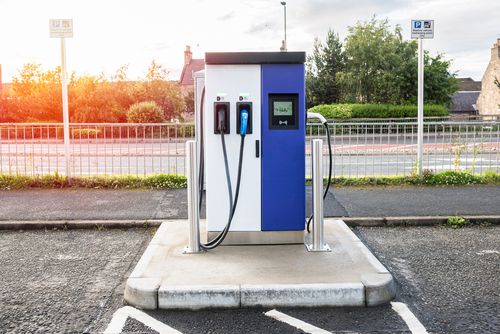
A total of 8 charging stations will be installed under the cooperation: a 350 kW super fast charging station and 7 other 200 kW fast charging stations at four locations in Seoul and nearby cities. GS Caltex is responsible for the operation of the charging stations and plans to commission them before the end of the first half of 2021. The 350 kW superfast charging station is capable of charging the 800-volt technology-based Kia EV6 to 80 percent in just 18 minutes. The new Kia EV6 will be unveiled to the public later this month.
Meanwhile, the Hyundai Group is working to add charging stations to existing gas stations. The goal is to build a network of 120 superfast charging stations at 20 locations this year. The sites are located in major cities and at rest stops along the highway. In terms of electric mobility, Hyundai also has more good news to report. The Ioniq 5, Hyundai’s first model based on the E-GMP platform, has been enthusiastically received by customers and the press. In South Korea, 26,000 vehicles have already been reserved in advance by potential customers. This is almost equivalent to the planned annual sales figures. On the first day of reservations in Europe, 3,000 vehicles were pre-ordered there. Pre-bookings for the Kia EV6 are expected to reach similarly high numbers.
Are you interested in the Korean automotive market? Before your products can be launched on the market there, they must undergo certification. MPR International GmbH will be pleased to advise you regarding a Korea certification in the automotive sector. We have already successfully assisted many large automotive suppliers and vehicle manufacturers with locations in Korea with their certification projects and have been supporting these companies for several years. Our experts are at your disposal at any time by phone or e-mail to answer your questions regarding a pending Korea certification.
If you need assistance or have any questions regarding Korean certifications like KC, KC EMC, KCs or KCs for explosion safety products, feel free to contact us any time.
Tel.: +49-69-2713769259
Email: info@korea-certification.com
Urgent questions?
Please do not hesitate to contact us via chat. You will find the chat window at the bottom right of each page (if this is not visible, please check your browser settings).
For more information you can download our free brochure “Korea Certification Made Easy – The Booklet“.
Korean automotive industry on a solid recovery track
The Ministry of Trade, Industry and Energy released the corresponding figures on February 15. Automobile production increased 24.9 percent, domestic sales increased 18.4 percent and exports increased 24.9 percent. For the first time in five months, all these figures increased by more than 10 percent. In numbers, exports increased from 148,546 to 192,322 units in one year. SUVs in particular increased by 37.7 percent and now account for 71.7 percent of all exported vehicles. Due to the resurgence in demand from the U.S., all categories except compact cars posted increases.
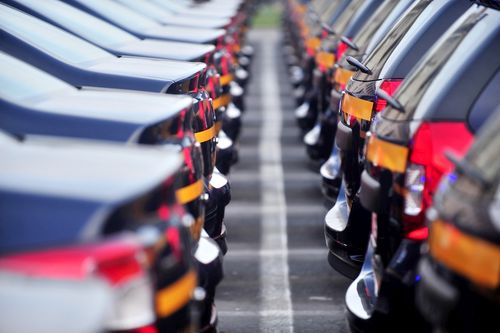
Export volume reached $4 billion in January, up 40.2 percent from a year earlier. That’s the highest figure since September 2017, led by exports of luxury SUVs and environmentally friendly vehicles with alternative engines, whose exports more than doubled. Last month, exported hybrid and electric vehicles from Korea reached a record $900 million. That represents a quarter of the country’s total auto exports.
In the domestic market, a total of 134,692 vehicles were sold in January 2021, including about 22,000 imported cars. Monthly production capacity increased to 314,190 units from 251,578 in the same month last year. This increase represents 24.9 percent and is the best figure since October 2018. Are you interested in the Korean automotive market? Before your products can be launched on the market there, they must undergo a KC certification. MPR International GmbH will be pleased to advise you regarding Korea certification in the automotive sector. We have already successfully assisted many large automotive suppliers and vehicle manufacturers with locations in Korea with their certification projects and have been supporting these companies for several years. Our experts are available at any time by phone or e-mail to answer your questions regarding a pending Korea certification.
If you need assistance or have any questions regarding Korean certifications like KC, KC EMC, KCs or KCs for explosion safety products, feel free to contact us any time.
Tel.: +49-69-2713769259
Email: info@korea-certification.com
Urgent questions?
Please do not hesitate to contact us via chat. You will find the chat window at the bottom right of each page (if this is not visible, please check your browser settings).
For more information you can download our free brochure “Korea Certification Made Easy – The Booklet“.
South Korean Posco Group invests in the safety of its plants
During a visit to a pier for unloading ships inside the steel plant in Pohang, North Gyeongsang Province, Posco CEO Choi Jeong-woo made his own assessment of the safety measures and inspected the facilities together with employees. Unfortunately, an industrial accident occurred there a week earlier, in which a 35-year-old worker was fatally injured. As head of the company in charge of safety, Choi said they would generously compensate the family and fully cooperate with authorities to determine the cause of the accident. Already in the past three years, the group has invested the sum of $904 million in occupational safety measures. “However, there is still much to be improved,” Choi is quoted as saying.
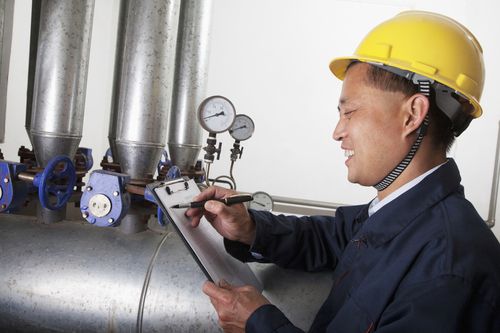
For example, Choi now requires that both subcontractors and Posco employees attend briefings held before maintenance work. In the meetings, called “toolbox” meetings, information about the respective risks of the work process are to be exchanged and discussed. For the safety of its own employees, Posco distributed 1,300 smartwatches to employees in hazardous workplaces last year to monitor their health. This year, another 1,400 smartwatches will be handed out. In addition, about $904 million will be invested in facility safety over the next three years. The funds will go toward replacing and upgrading old pipelines, conveyor belts and similar equipment.
These potentially hazardous machines and equipment require KCs certification in Korea, where the “s” stands for Safety. The mark is issued by the Korea Occupational Safety and Health Agency (KOSHA). Within this certification there are two groups, which differ in the facilities concerned as well as the procedure for certification: the Certification of Compliance (CoC) and the Declaration of Conformity (DoC). MPR International GmbH is at your disposal for any questions about Korea certifications.
If you need assistance or have any questions regarding Korean certifications like KC, KC EMC, KCs or KCs for explosion safety products, feel free to contact us any time.
Tel.: +49-69-2713769259
Email: info@korea-certification.com
Urgent questions?
Please do not hesitate to contact us via chat. You will find the chat window at the bottom right of each page (if this is not visible, please check your browser settings).
For more information you can download our free brochure “Korea Certification Made Easy – The Booklet“.
Posco Chemical builds 4th production facility for cathode base materials
Posco Chemical Co, a subsidiary of South Korean steel giant Posco, mainly produces refractory materials and secondary base materials for batteries. To capitalize on the growing demand for electric car batteries, the company is investing around $249 million in a fourth cathode basic materials production facility. The investment will expand the existing cathode materials factory in Gwangyang, South Jeolla Province, Posco announced at the groundbreaking ceremony in late February. Production is scheduled to start in 2023.
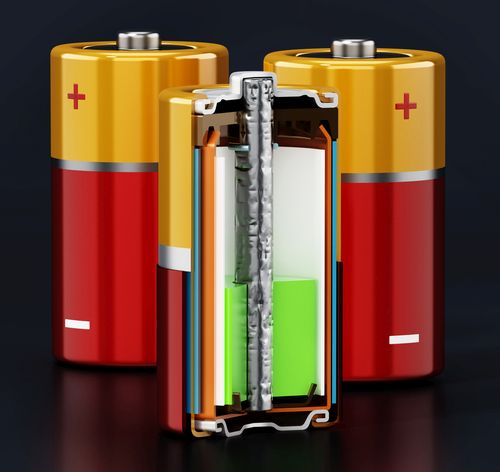
A fourth plant will increase the group’s annual production capacity to 100,000 tons. The expansion will mainly involve the construction of production lines for nickel-containing NCMA cathodes. NCMA cathodes are combined with NCM cathodes and increase the stability of the batteries and their capacity while keeping production costs low. Such a vehicle battery can achieve a range of up to 500 kilometers on a single charge.
Already last year, Posco Chemical started to expand its production for vehicle batteries. The capacity of the plant in Gwangyang was increased to 25,000 metric tons, starting there with 5,000 tons annually. The next increase of another 30,000 tons is already under construction and will start operations in November. The future annual output of 100,000 tons of cathode raw material in 2023 is sufficient for 1.1 million electric cars, each equipped with a 60 kWh battery. Electric car components, which include batteries, must undergo certification for the KC mark or KC certificate in Korea. Our experts are available to answer their questions at any time without obligation.
If you need assistance or have any questions regarding Korean certifications like KC, KC EMC, KCs or KCs for explosion safety products, feel free to contact us any time.
Tel.: +49-69-2713769259
Email: info@korea-certification.com
Urgent questions?
Please do not hesitate to contact us via chat. You will find the chat window at the bottom right of each page (if this is not visible, please check your browser settings).
For more information you can download our free brochure “Korea Certification Made Easy – The Booklet“.


